List from Jennings County Commissioners - Soldiers Whose Families Qualified for Relief in 1865 near the end of the Civil War
By Township
In March 1865 - just one month before the Civil War ended - the Indiana legislature passed a law adding a special property tax for 1865 and 1866 (Acts of 1865, regular session, Chapter 40). The tax consisted of a $1 poll tax plus a tax rate of $0.003 for every $1 of assessed property value. The taxes that were collected, along with $100,000 furnished by the state budget, were to be disbursed to township trustees (via the county commissioners) to pay the dependent families of non-commissioned soldiers (defined as officers, musicians or privates) who had been wounded, disabled or killed. The soldier's wife or dependent mother was to receive $8 per month, while a child under the age of 12 was to receive $2 per month. If the child had no mother living, they were to receive $4 per month. If the soldier's child was over the age of 12 but was insane or an invalid, they were to be paid as if they were under the age of 12.
To determine who would be eligible for this payment, the township assessors in each county were to make an enumeration and return it to the county auditor. The 1865 enumeration was to be completed as soon as possible; the 1866 enumeration was due before the 4th Monday in May 1866. When enumerating the families, the township assessor was to make note of how many dependents, and include the sex and age of each child under age 12.
The township trustees were to keep track of families who had moved, and were to report to the county commissioners on the 1st Tuesday of April and October on how the funds had been disbursed.
This law was short-lived - in the fall of 1865, the legislature returned to meet in special session, and in December 1865 they repealed this law (Acts of 1865, special session, Chapter 7). However, they ordered the taxes that had already been collected in 1865 to be disbursed as if the law were still in effect. The township trustees were to end all their disbursements on March 3, 1866, and the county treasurer was to pay back the state 5% of the taxes they had collected in 1865. Any money the counties had left over after March 1866 was to be used by the county commissioners to first help any disabled non-commissioned soldiers, and then second, the soldiers' wives, dependent mothers and children.
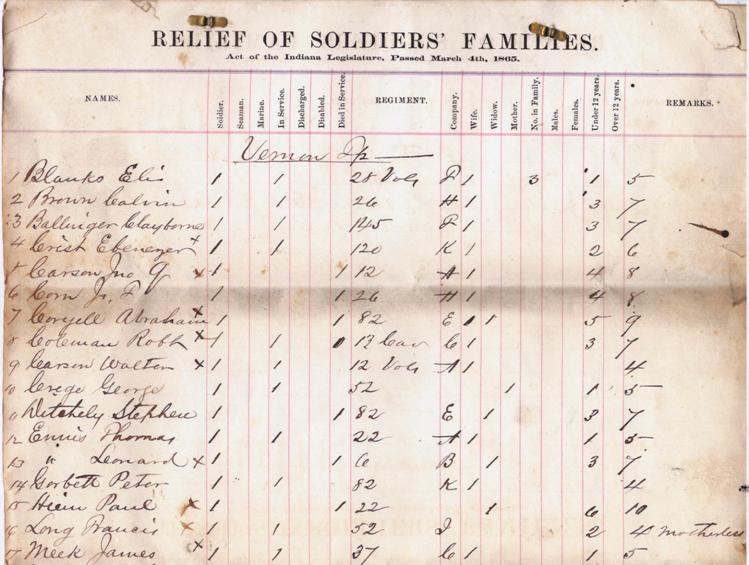
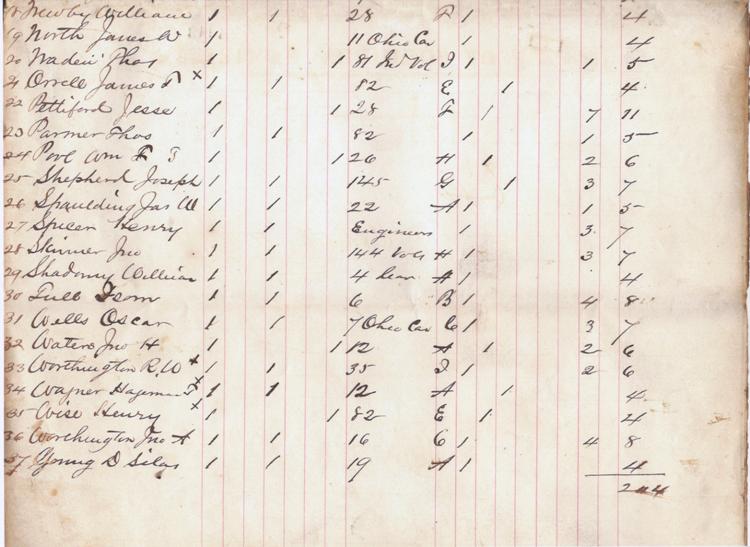
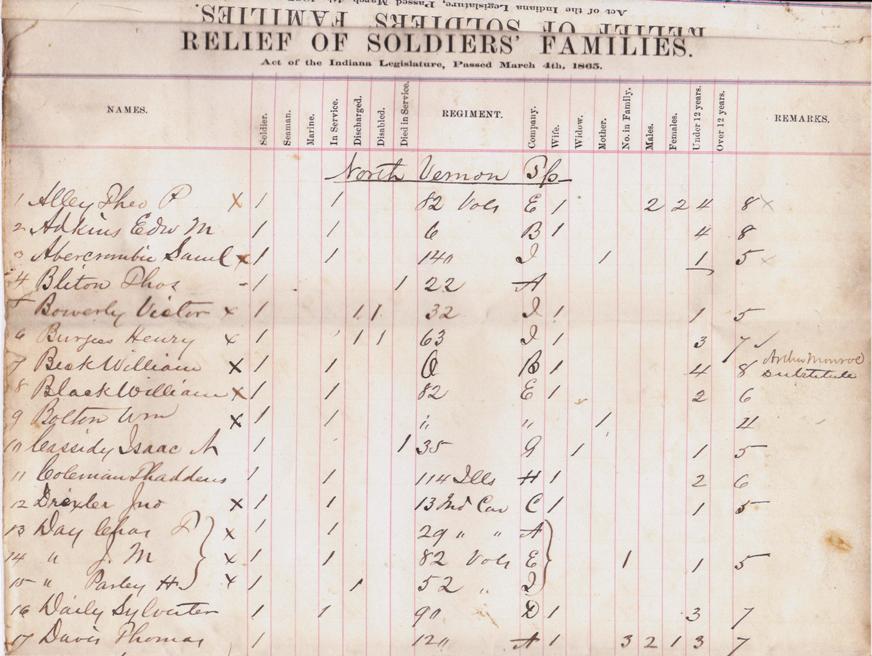
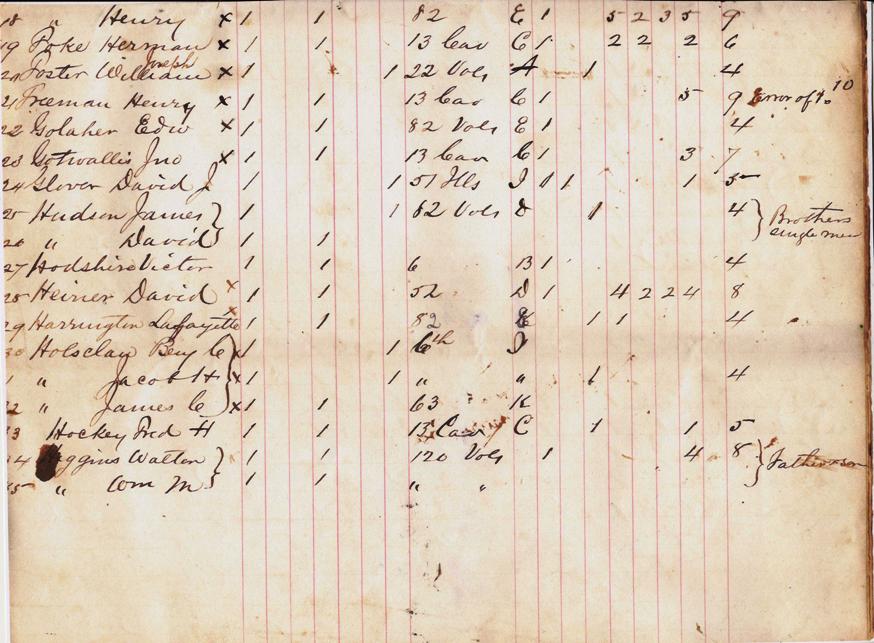
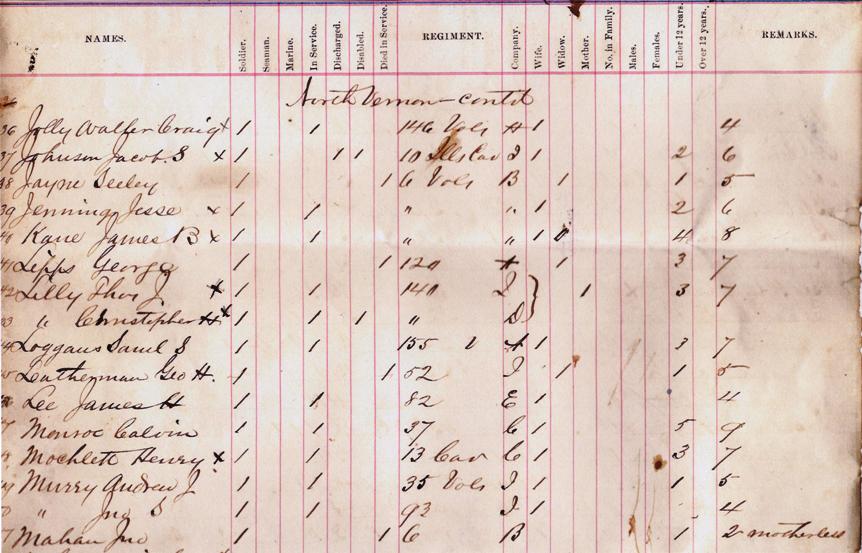
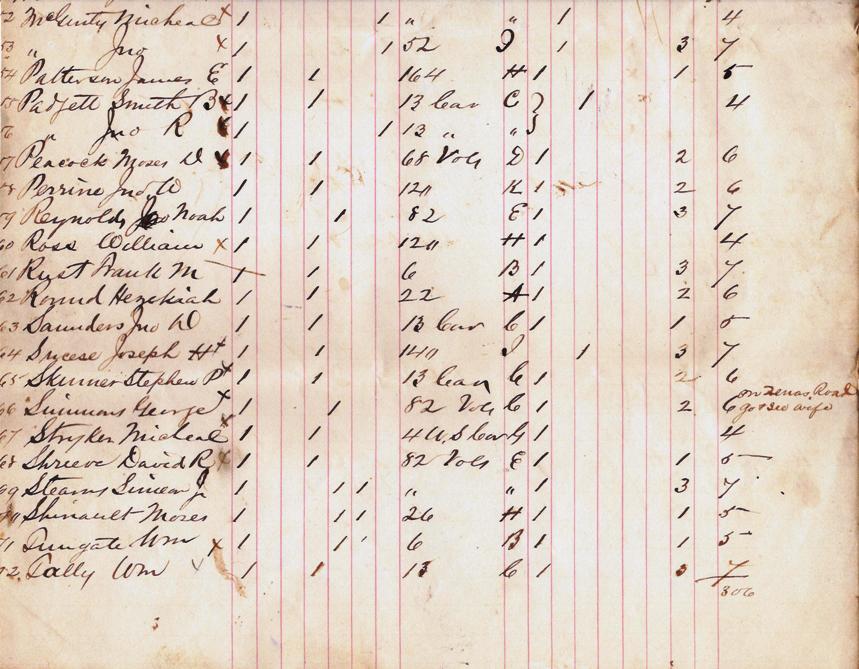
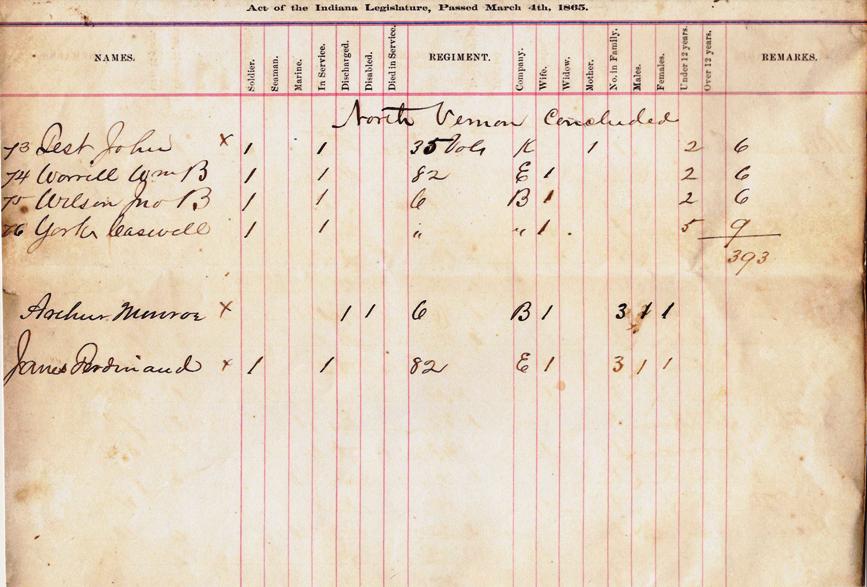
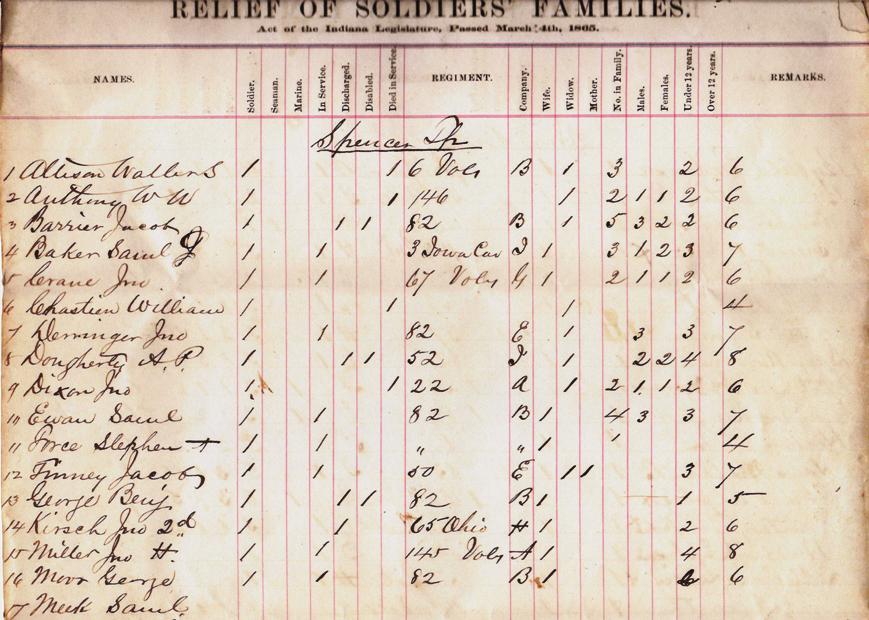
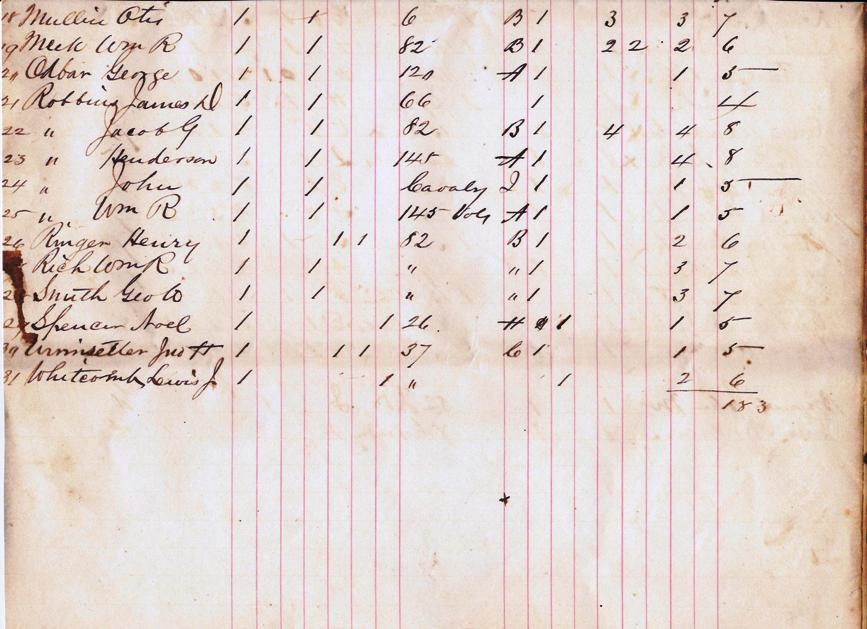
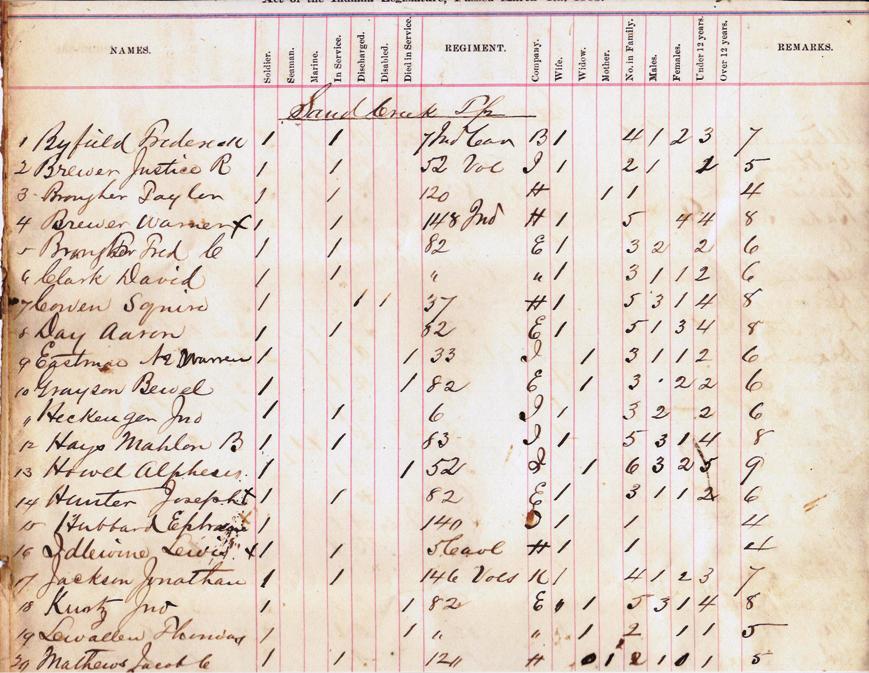
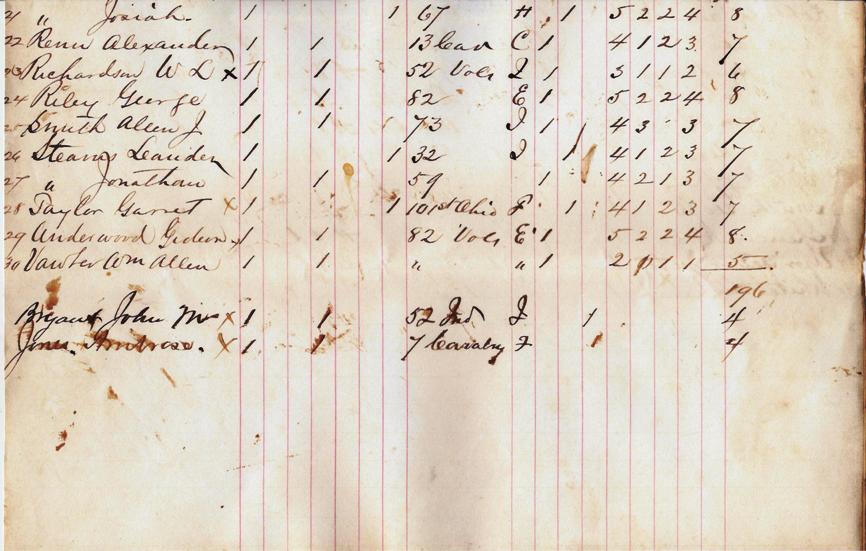
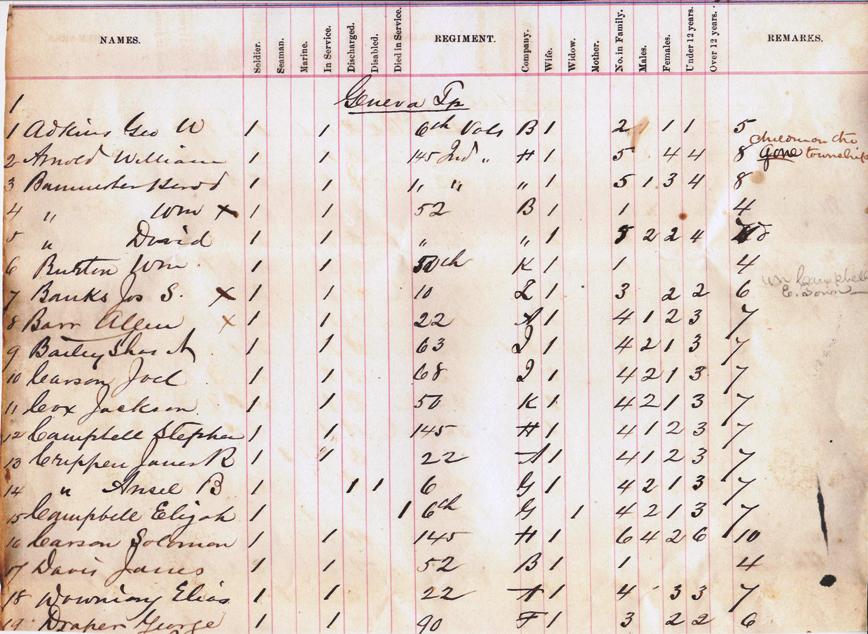
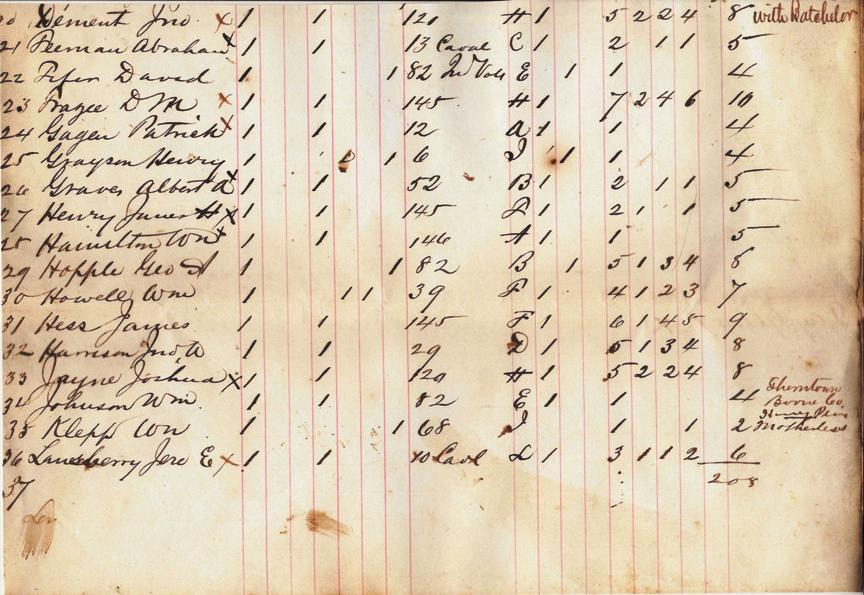
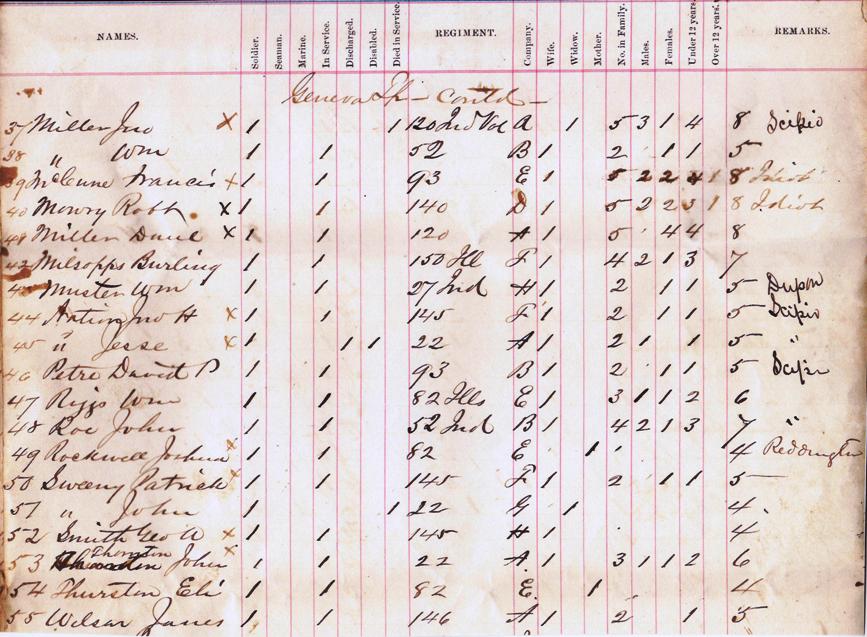
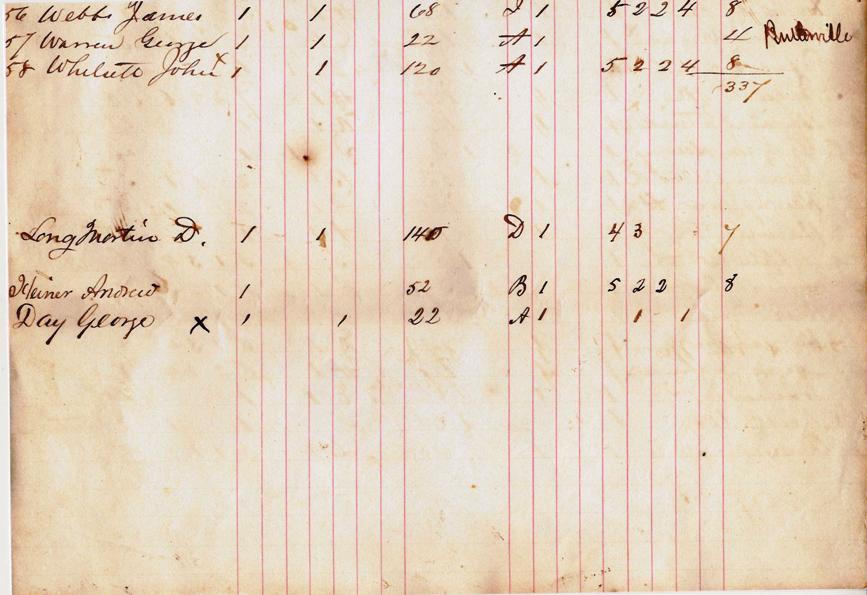
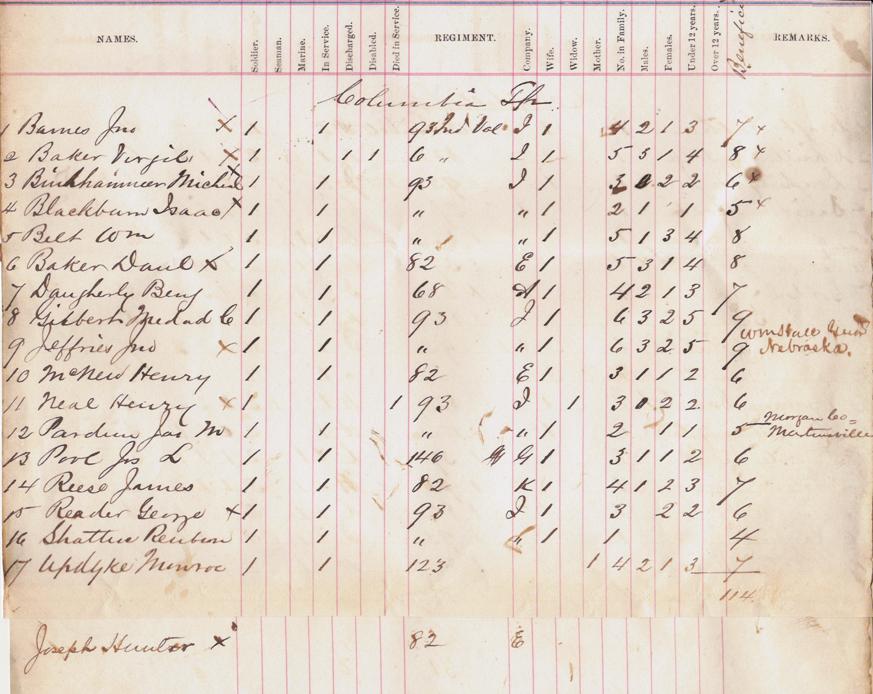

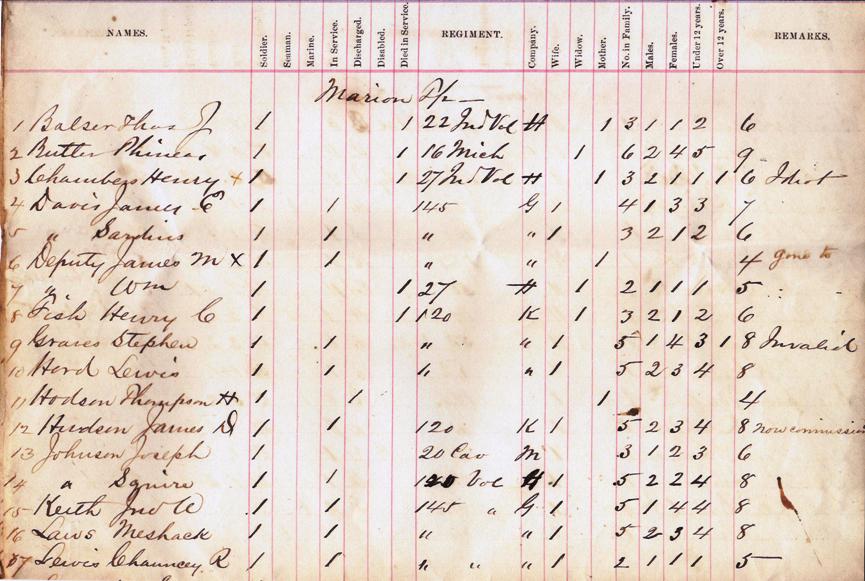
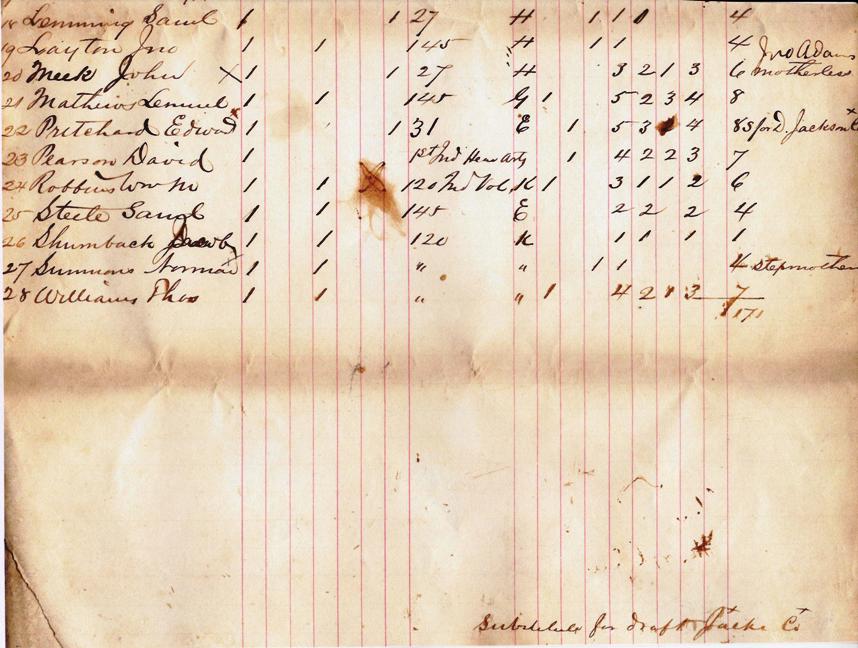
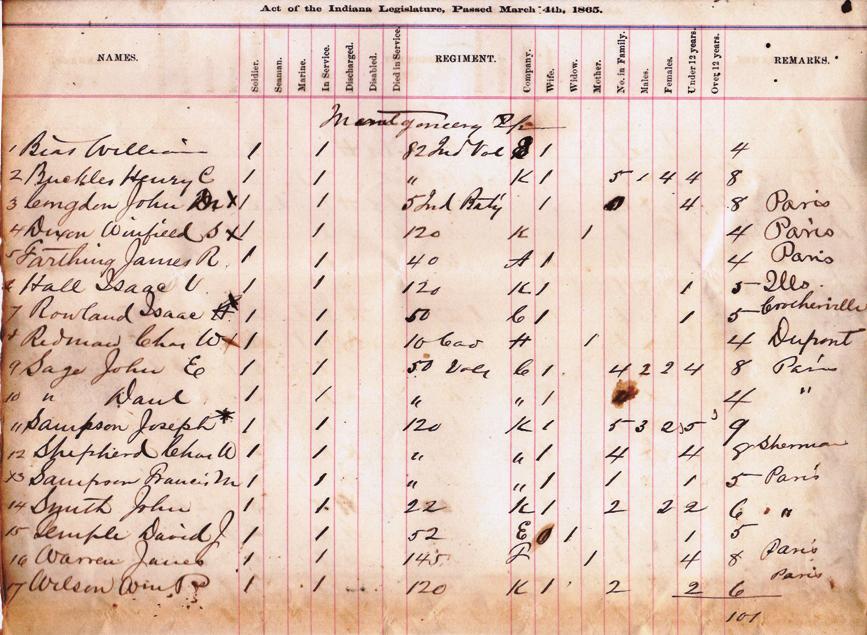
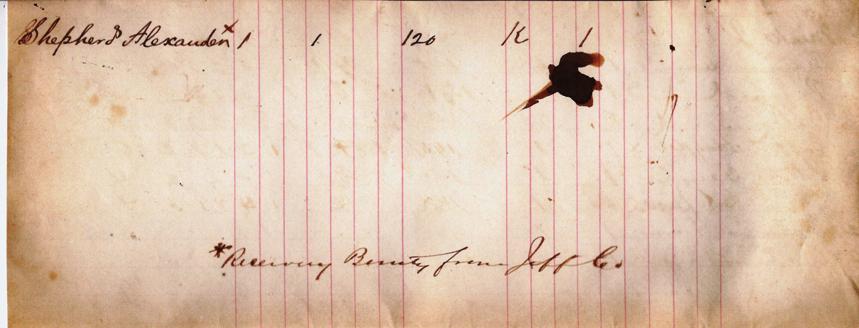
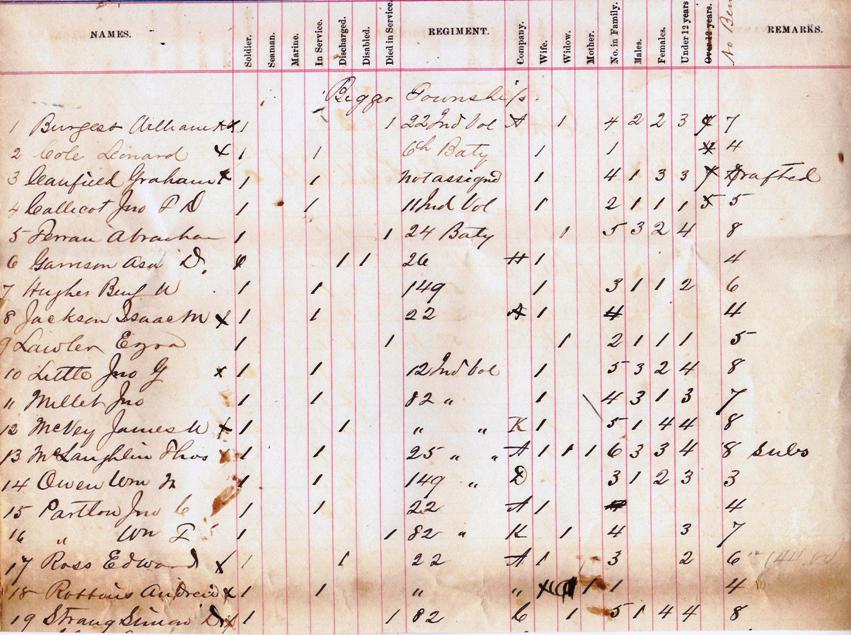

You may use this material for your own personal research, however it may not be used for commercial publications without express written consent of the contributor, INGenWeb, and